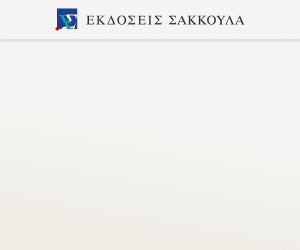Lawspot exclusive interview: Linos-Alexandre Sicilianos - the new President of the European Court of Human Rights
A conversation with the newly elected President of the ECtHR on the challenges the Court is facing, the relationship with the EU, Brexit and the effects of the ECtHR’s case law on the Greek legal order
*Note: This interview took place before Mr. Sicilianos assumed his duties, but its translated version was published after that.
A few weeks ago, the European Court of Human Rights (ECtHR) announced that Mr. Linos-Alexandre Sicilianos, Professor of International Law and ECtHR Judge (Greece), was the newly elected President of the Court.
The new ECtHR President, who will officially assume his duties on May 5th, accepted our invitation for a conversation on trending topics, such as the responsibilities in view of his new role, the challenges the Court is facing, the ECtHR’s relationship with the EU, Brexit, as well as the effects of the ECtHR’s case law on the Greek legal order.
*****
Mr. President,
First and foremost, we would like to thank you for agreeing to do this interview. It is a great honour for us. We would also like to extend our warm congratulations on your recent election as President of the ECtHR.
Your election is a well-deserved achievement, given your long-lasting career in the field of international law and the protection of human rights, at a national, European and international level. During these years, you have held various positions, such as Professor of Public International Law at the Law School of Athens, Vice-Chairman and Rapporteur of the United Nations Committee on the Elimination of Racial Discrimination (CERD), Vice-Chairman of the Greek National Commission for Human Rights and Vice-Chairman of the International Institute of Human Rights.
- In your point of view, has the ECtHR case law led to a human rights-based approach in the case law of the Greek Supreme Court (Areios Pagos) and the Greek Council of State (Symvoulio tis Epikrateias)?
You raise a very important question. The answer lies in the affirmative.
Indeed, there are concrete examples from the Greek Supreme Court (Areios Pagos) case law, especially in the field of expropriation. The case-law of the Supreme Court has gradually evolved following a series of ECtHR judgments in this particular field. As a result of this evolution, the entire process of expropriation has become simpler, more effective and more accessible to the Greek citizens.
Another important example is the so-called “excessive formalism” of the Greek Supreme Court. That issue was resolved by a document of the Greek Supreme Court Plenary.
Examples in the same direction can be found in the Greek Council of State (Symvoulio tis Epikrateias) case law. The most recent example is the application of the ne bis in idem principle, following the ECtHR judgment delivered in the case of Kapetanios (Judgment of 30 April 2015, Case Kapetanios and others v. Greece, Applications nos. 3453/12, 42941/12 and 9028/13).
Apart from the Greek Council of State and the Greek Supreme Court, the Greek Court of Auditors (Elegktiko Synedrio) has also aligned itself with the ECtHR case law on multiple occasions.
- What effect do you think that the ECtHR’s case law has on the Greek legislator insofar as the introduction of progressive legislative initiatives is concerned?
Undoubtedly, apart from the Greek judiciary, the Greek legislator has introduced many significant reforms on the basis of the ECtHR case law.
Such examples are, firstly, the extension of the scope of of application registered partnerships to same-sex couples following the ECtHR Grand Chamber judgment delivered in the case of Vallianatos (Judgment of 7 November 2013, Case of Vallianatos and others v. Greece, Applications nos. 29381/09 and 32684/09) and, secondly, the Greek legislator’s more recent reform, while the case of Molla Sali v. Greece was pending before the ECtHR Grand Chamber (Judgment of 19 December 2018, Case of Molla Sali v. Greece, Application no. 20452/14). The latter case concerned the mandatory application of Sharia law to every member of the Muslim community in the region of Western Thrace. The Greek legislator introduced a piece of legislation aiming at the creation of a “citizen-friendly” legal framework, in line with the unanimous Court judgment .
Finally, it has to be noted that, at the constitutional level, the series of proposals amending various constitutional articles during the 2001 Constitution Review were perfectly aligned with the ECtHR case law.
Therefore, there have been not only fundamental legislative and jurisprudential developments in Greece, but also amendments at the constitutional level, with the aim of achieving the necessary compatibility with the ECtHR case law.
- What are the main challenges the ECtHR is facing in your opinion? There is currently a wide-spread tendency of challenging the legitimacy of international courts and tribunals (for example, the Dispute Settlement Body of the World Trade Organization is almost paralyzed) due to an increasing tendency of questioning a multilateral rules-based international legal order (unilateralism against multilateralism) and a sense of “nostalgia” for the traditional sovereignty. Brexit might be taken as an example of this situation. Do you consider that the ECtHR is facing similar challenges?
The ECtHR is called today to provide answers to a series of questions on various aspects of the European crisis. There are a number of recent judgments regarding the financial crisis which form part of the Court’s case law. In addition, the Court keeps rendering an increasing number of judgments concerning the migration and refugee crisis. The Court also deals with various cases which concern the institutional crisis in some Member States, mainly on the issue of judicial independence. At the same time, the Court handles with great caution cases as far as they concern terrorism, lato sensu, issues related to terrorist acts and anti-terrorist measures adopted by a country.
However, I should emphasize the fact that the biggest challenge the Court is facing nowadays are the inter-State applications regarding, either past or more recent, armed conflicts. In this regard, the inter-State applications lodged by Ukraine against the Russian Federation on the Crimea and Eastern Ukraine issue should be mentioned, as well as the application lodged by Georgia against the Russian Federation in respect of the events that took place during August 2008.
As far as Brexit is concerned, I do not think that the Court will be somewhat affected for the time being, at least in the short-term or even in the mid-term. In fact, I would like to point out that the current UK Prime Minister, Mrs. Theresa May, has undertaken a commitment that her country will maintain its status as Member of the Convention system, while at the same time drawing a clear distinction between the Council of Europe, an Organization consisted of 47 Member States with the UK being one of its founding Members, and the European Union.
“ The UK relationship with the EU is one thing, while its relationship with the Council of Europe is another “
The UK has adopted the so-called “Human Rights Act”, which has transposed the ECHR provisions in its legal order and, according to this instrument, the UK judicature is obliged to take into consideration both the Convention provisions and the ECtHR’s case law. The UK judiciary is known for its high level of expertise on the Court’s case law. Accordingly, for the time being, I do not see any change of course on behalf of the UK regarding the relationship with the ECHR.
Personally, I had the chance to visit, at high judicial level, the UK last year. During that visit, I had a pleasant and productive meeting with the President of the UK Supreme Court, Lady Hale, who assured me that the UK remains absolutely dedicated to the Convention system.
- Could you define the role of the ECtHR as far as concerns the functioning of the European Union, mainly the application of the Charter of the Fundamental Rights of the European Union, following the Opinion 2/13 of the Court of Justice of the EU on the accession of the Union to the ECHR?
The accession to the ECHR is a matter of concern solely to the European Union. For the time being, I can discern a certain degree of reluctance on the matter on behalf of the Union. Of course, anything can change, since the Lisbon Treaty specifically provides that the Union shall accede to the Convention (article 6 (2) of the Treaty on European Union). Nonetheless, I would like to repeat that from my point of view, it seems that there is no will on the part of the EU for the time being.
“ The dialogue between the ECtHR and the CJEU remains active and I don’t see any “case law conflict” ”
However, I would like to underline that during the past years, there have been frequent contacts between the ECtHR and the Court of Justice of the EU (CJEU) which could be characterized as “very friendly”. Personally, I visited Luxembourg last November, as I was placed in charge of a Court delegation. We have already extended an invitation to the CJEU President, Mr. Koen Lenaerts, to visit us in the months to come. As a general rule, during these working meetings which last many hours, all the matters, including those which may lead to a disagreement, are put on the table in order to achieve the maximum consensus.
In addition, the CJEU, on the one hand, cites in its judgments rather frequently various ECHR provisions as well as the relevant ECtHR case law. The ECtHR, on the other hand, cites in its judgments many CJEU judgments. Consequently, the dialogue between the two Courts remains active and I don’t see any “case law conflict”.
- What challenges are you facing as the newly elected President of the European Court of Human Rights?
The Court has put a lot of effort in improving its modus operandi throughout the years. I have chaired the Committee on the Working Methods of the Court and many of the relevant decisions have been made at Plenary level and have to be implemented. Therefore, the first thing for me to do as the new President of the Court is to ensure the improvement of the Court’s working methods, in order to achieve a greater degree of effectiveness. Over the last years, the Court has been remarkably productive and efficient: when I first joined the Court there were 161,000 pending applications, whereas today they are less than 60,000.
“ The Court’s functioning should not be affected at all, because the Court lies at the very heart of the whole system: the Council of Europe exists because of the functioning of the Court ”
Given the above, we are led to the conclusion that the Court has managed to deal with over 100,000 pending applications, while at the same time the number of the applications lodged every year keeps increasing. The Court’s working methods have been drastically improved and I would like to contribute even more with the aim of completing this huge effort.
Another issue worth of mention are the rising challenges in view of the Court’s budget. To be more precise, the Council of Europe (CoE) faces several financial difficulties. Nevertheless, I am of the opinion that the Court’s functioning should not be affected at all. For the time being, it has either been affected at a low level or it has not been affected at all. The Court lies at the very heart of the whole system: the Council of Europe exists because of the functioning of the Court.
As a result, in order for the Court to fulfill its role effectively, its function should not be involved in the ways of dealing with financial difficulties.
It is beyond any doubt that all the challenges I previously mentioned apply to the President of the Court as well: the President has to deal with many cases, mainly at the Plenary level, which raise difficult legal questions and have implications on the everyday life of the Member States’ peoples. Consequently, all of these challenges are also encountered by the President himself.
- Mr. President, we thank you for your time and your detailed answers. We wish you every success in your new role as the ECtHR President.













